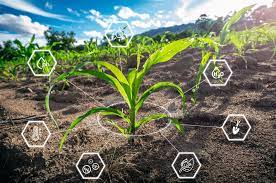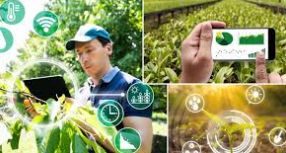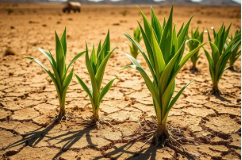
In the heartlands of rural India, a quiet revolution is taking place. Farmers who once relied solely on intuition and traditional knowledge are now embracing cutting-edge tools like artificial intelligence (AI), satellite imaging, drones, and precision sensors to improve their yields, reduce costs, and navigate the growing challenges of modern farming. The rise of precision agriculture and AI-driven solutions is gradually transforming the way crops are grown, monitored, and harvested across the country.
For years, Indian agriculture has struggled with low productivity, erratic weather, labor shortages, and soil degradation. But with the integration of smart technologies, a new wave of hope is emerging particularly among progressive farmers in states like Punjab, Maharashtra, Karnataka, and Andhra Pradesh.
One such example is the growing use of AI-powered crop advisory apps. These platforms analyze real-time weather data, soil health reports, and satellite images to give farmers customized advice on when to sow, irrigate, fertilize, or spray pesticides. Instead of guesswork, decisions are now backed by data, often accessible on a simple smartphone.
Similarly, drones and GPS-enabled farm equipment are enabling precision in the field like never before. Spraying fertilizers or pesticides used to be a manual, often wasteful process but drones now apply inputs only where needed, cutting down usage and reducing environmental harm. This not only saves money but also protects beneficial insects and reduces water pollution.
Startups and agritech companies are playing a key role in this transformation. Firms like DeHaat, CropIn, BharatAgri, and Fasal are offering end-to-end digital solutions from crop planning and disease prediction to market linkages and insurance. Their tools help farmers manage risks better and secure fairer prices through online mandis and contract farming platforms.
Government initiatives have also supported this shift. Schemes like Digital Agriculture Mission and collaborations with ISRO and ICAR are encouraging the adoption of AI and geospatial technology in farming. The push for soil health cards, digital land records, and smart irrigation systems is laying the groundwork for more intelligent agriculture practices at scale.
However, the journey is not without challenges. Many small and marginal farmers still lack access to reliable internet, training, or capital to invest in tech tools. There is also a digital divide in remote regions, where awareness about AI and precision farming remains low. Bridging these gaps will require coordinated efforts from the government, private sector, and grassroots organizations.
Despite these hurdles, the momentum is building. More farmer producer organizations (FPOs), cooperatives, and state agriculture departments are conducting workshops to train farmers in digital literacy and smart farming methods. As costs of devices come down and mobile connectivity spreads, experts believe that precision farming could become mainstream in the next decade.
For a sector that feeds over 1.4 billion people and employs nearly half of India’s population, the integration of artificial intelligence and precision tools could be the biggest leap forward since the Green Revolution. It’s not just about increasing yields it’s about building a more resilient, efficient, and sustainable future for Indian agriculture.














